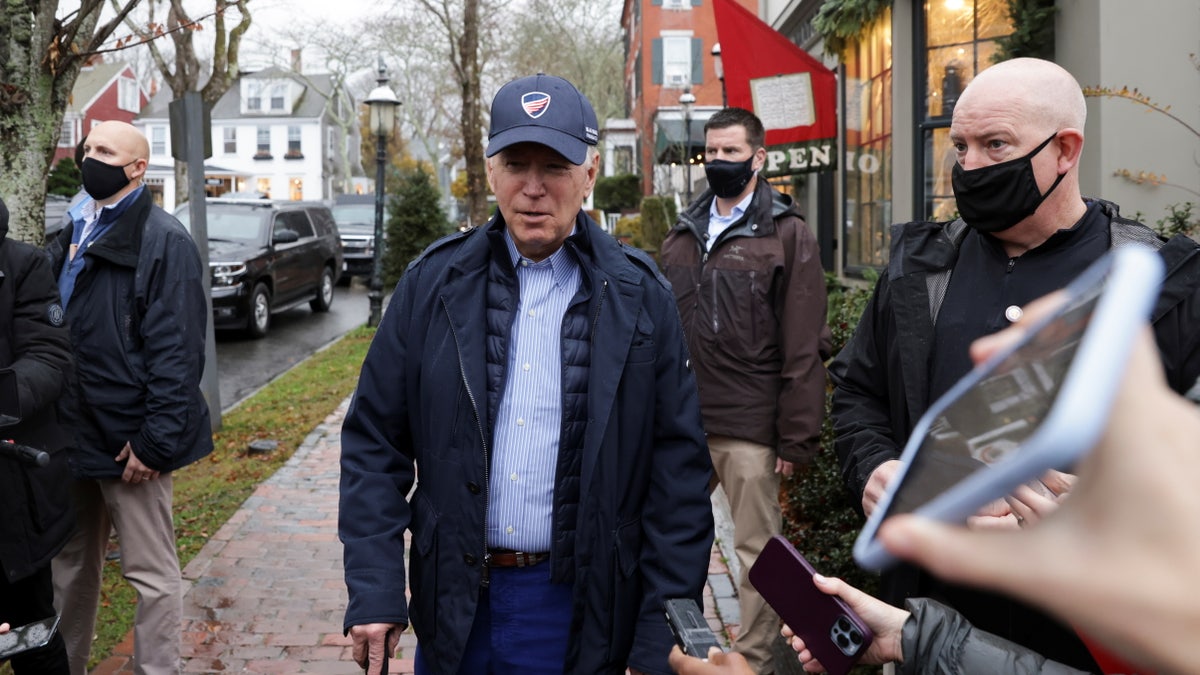Media top headlines December 15
In media news today, Andrew Cuomo gets ordered to return millions from his pandemic book deal, CNN fires a senior producer charged with inducing minors for sex, and ESPN gets dragged for reviving debunked narrative that Bubba Wallace found a 'noose' in his NASCAR garage
Jay Rosen, an associate journalism professor at NYU and frequent CNN-guest encouraged the media on Wednesday to cover the Republican Party differently than it does Democrats, arguing that the actions of the GOP do not warrant "normal" coverage.
On New York Times new podcast "The Argument," Rosen claimed that while he doesn’t want the media to deliberately put their thumb on the scales for Democrats, journalists would be mistaken to cover the Republican Party, who are operating with "an authoritarian mindset," in the same way.
WAPO EDITORIAL BOARD WARNS DEMOCRATS: COURT PACKING WOULD BE A ‘MISTAKE’
"I don’t think journalists should put their thumb on the scale for the Democrats because of how bad Donald Trump is. It’s not something that I believe. I’ve never written that. It’s not my point of view," Rosen said.
He did argue that journalists should "rethink" their longstanding practices to make sure that their coverage reflects the "radical imbalance between the two parties."
"Rather than two roughly equal parties fighting it out for advantage, we now have a radical imbalance between the two parties. One is normal. And by normal, I don’t mean angelic or that it has all the answers, or it’s the one right way to go, but it’s just a normal party. The Democratic Party looks roughly like what we expect our major parties to be," he said.

Jay Rosen is an associate journalism professor at NYU. ( )
Rosen continued, "The other political party is bowing to an authoritarian mindset and willing to break the election system in half in order to return an authoritarian to power. And my point is not that journalists, as I said, should put their thumb on the scale. It’s rather they have to recognize that the picture of politics on which they base their practices is shattered. And therefore, they have to rethink their practices, in a sense, from the beginning because the premises underneath it have collapsed."
The contradicting statements left fellow podcast guest New York Times columnist Ross Douthat confused.
"So I just want to know, what is the recalibration for an era where the Republican Party — or at least part of the Republican Party — is not abiding by democratic norms — what else should the media be doing while it’s covering the real problems that Biden is wrestling with? Jay has already said it’s not just a matter of criticizing Trump more, even as he’s somewhat offstage. What is it? What is the recalibration?," Douthat asked.
Rosen responded by repeating how former President Trump and Republicans are an "autocratic movement" and should be covered more through that lens by the media.
"It’s maintaining some sense of proportion when you have a normal president doing normal things within a normal party and trying to act normally like a leader," he said, "and a rogue figure who has, through the political movement that he created, the engine of which is the denial of reality or straight-up lying…."
Douthat still unsure, asked Rosen what specific actions reporters could take that doesn't ignore covering issues critical of Biden like the surge in COVID cases due to the omicron variant or Russia's increasing aggression towards Ukraine.

U.S. President Joe Biden speaks to the media before entering "Nantucket Bookworks" bookstore following lunch with family at the Nantucket Tap Room, in Nantucket island, Massachusetts, U.S, November 26, 2021. REUTERS/Tasos Katopodis
CLICK HERE TO GET THE FOX NEWS APP
"I think this is what journalists have to recognize, not that they should be nice towards Biden," Rosen said, "but that, when they are critical, they have to set what he’s doing within this larger context, and that’s not always what I see."









































